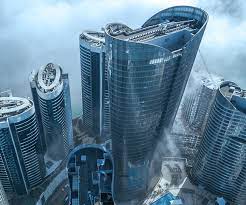-
IHS Markit UAE PMI rose from 52.2 in June to 54.0 in July, pointing to a strong improvement in business conditions.
-
Firms hoped easing of COVID-19 restrictions and the Expo 2020 later this year would help to improve economic conditions.
DUBAI: The rate of growth in the UAE non-oil economy picked up in July, reaching the strongest in exactly two years as demand continued to rebound from the Covid-19 pandemic, London-based research firm IHS Markit said in its latest Purchasing Manager’s Index (PMI) for UAE.
A sharp rise in new orders drove increasing pressure on business capacity and a marked expansion in output, while employment rose at the fastest rate since January 2019. But delays to shipments from Asia led to the worst lengthening of suppliers’ delivery times since April 2020 and contributed to a quicker rise in input costs.
The headline seasonally adjusted IHS Markit UAE PMI rose from 52.2 in June to 54.0 in July, pointing to a strong improvement in business conditions that was the most marked in exactly two years.
The Output and New Orders indices moved up to their highest levels since July 2019. The latest upturn in new orders was the eighth in nine months, as businesses commented on a further recovery in demand as COVID-19 restrictions ease, the PMI survey report said.
Lockdown measures also hit the supply of inputs at the start of the third quarter, particuarly from Asia where rising COVID-19 cases led to tighter restrictions. Most notably, UAE firms reported the second-worst lengthening of input lead times in the survey history, behind only that seen in April 2020.
Output meanwhile expanded at a much faster rate than in June, which firms related to higher demand, project work and the rollout of new products and services. Despite this, sharp growth in new orders and input delivery delays led to a renewed increase in backlogs of work, which was the most marked for 16 months.
July data also signaled an increase in employment, which panelists often linked to efforts to expand sales departments.
Whilst only marginal, the rate of job creation was the fastest since January 2019. Firms also expanded their purchasing activity in July, after a slight decrease in June.
Raw material shortages were often linked by panelists to a further upturn in raw material prices such as steel and cement.
Notably, overall cost burdens rose at one of the fastest rates in the last three-and-a-half years.
Higher input costs were again partly passed on to customers as output charges rose for the second month running. However, efforts by other firms to keep prices low in order to stimulate demand meant that the overall rise was only marginal.
Looking ahead, the outlook for future non-oil activity remained positive in July. Firms often hoped that the easing of COVID-19 restrictions and the Expo 2020 later this year would help to improve economic conditions. That said, for the first time in eight months, overall business expectations declined from the previous survey period.
David Owen, economist at IHS Markit, said, “At 54.0 in July, the headline PMI was broadly at its long-run level to suggest the economy was largely back to normal growth. That said, there were many firms reporting that output had not yet recovered to pre-Covid levels.”








